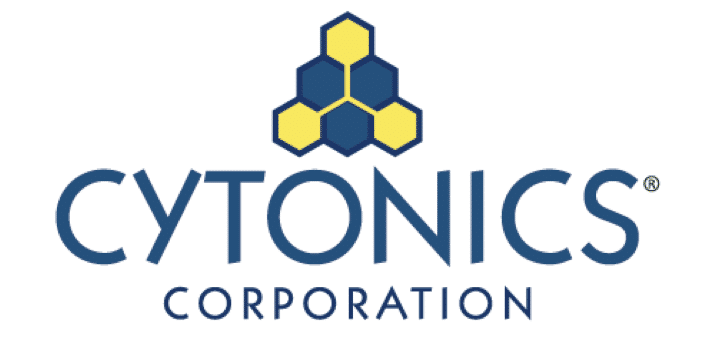Request Demo
Last update 08 May 2025
Southern Star Research Pty Ltd.
Last update 08 May 2025
Overview
Basic Info
Introduction Southern Star Research Pty Ltd. is a clinical research organization based in Gordon, Australia. The company specializes in providing services for biotechnology, pharmaceutical, and medical device clinical trials. |
Tags
Infectious Diseases
Other Diseases
Small molecule drug
Disease domain score
A glimpse into the focused therapeutic areas
No Data
Technology Platform
Most used technologies in drug development
No Data
Targets
Most frequently developed targets
No Data
| Disease Domain | Count |
|---|---|
| Infectious Diseases | 1 |
| Top 5 Drug Type | Count |
|---|---|
| Small molecule drug | 1 |
Related
1
Drugs associated with Southern Star Research Pty Ltd.Target- |
Mechanism- |
Originator Org. |
Active Indication |
Inactive Indication- |
Drug Highest PhasePhase 1 |
First Approval Ctry. / Loc.- |
First Approval Date- |
12
Clinical Trials associated with Southern Star Research Pty Ltd.NCT06263270
A Phase Ia, Multicenter, Double-Blind, Placebo-controlled Study to Evaluate the Safety of CYT-108 for the Therapy of Mild to Moderate Primary Osteoarthritis of the Knee
The goal of this Phase 1 study is to investigate the safety of CYT-108, our experimental recombinant protease inhibitor drug candidate for osteoarthritis, in a population of patients suffering from osteoarthritis of the knee. The main questions this study aims to answer are:
are two doses of CYT-108, delivered 12 weeks apart, safe when injected directly into the joint?
does administration of CYT-108 result in a reduction in pain, stiffness, and improvement in daily physical function?
Participants will either receive a placebo (Phosphate Buffer Saline, PBS) or CYT-108, and will be asked to report their pain/stiffness at weeks 1, 4, 8, 12, 16, and 26 (in a physician's office) after the initial injection, using a questionnaire to be provided by the physician. In addition to reporting the magnitude of pain, participants will also be asked about the onset of pain reduction. Researchers will compare the pain/stiffness scores between the CYT-108-treated to placebo-treated groups along the 26 week duration of the study. Participants will also receive blood draws along the course of the study, and researchers will analyze this blood for the presence of cartilage degradation product in attempt to identify "disease modification" (i.e., a reduction in cartilage degradation) in response to CYT-108 treatment.
are two doses of CYT-108, delivered 12 weeks apart, safe when injected directly into the joint?
does administration of CYT-108 result in a reduction in pain, stiffness, and improvement in daily physical function?
Participants will either receive a placebo (Phosphate Buffer Saline, PBS) or CYT-108, and will be asked to report their pain/stiffness at weeks 1, 4, 8, 12, 16, and 26 (in a physician's office) after the initial injection, using a questionnaire to be provided by the physician. In addition to reporting the magnitude of pain, participants will also be asked about the onset of pain reduction. Researchers will compare the pain/stiffness scores between the CYT-108-treated to placebo-treated groups along the 26 week duration of the study. Participants will also receive blood draws along the course of the study, and researchers will analyze this blood for the presence of cartilage degradation product in attempt to identify "disease modification" (i.e., a reduction in cartilage degradation) in response to CYT-108 treatment.
Start Date01 Jun 2024 |
Sponsor / Collaborator  Cytonics Corp. Cytonics Corp. [+1] |
NCT05994664
The Effects Of Heart Coherence Training On Patients With Vascular Ehlers-Danlos Syndrome (HEARTMATH)
Vascular Ehlers-Danlos Syndrome (VEDS) is caused by pathogenic variants of the COL3A1 gene, resulting abnormal Type III collagen protein. This impacts the body's connective tissue and makes people with VEDS at high risk of spontaneous aortic and arterial rupture, pneumothorax, and hollow organ perforation across the age spectrum. Given this risk and high potential for lethality, VEDS is considered the most severe type of Ehlers-Danlos Syndrome. In addition, many patients experience chronic pain and fatigue, sleep disturbances, and mental health challenges. As is the case for many patients with chronic illness, stress, anxiety, and depression are often present over the course of the disease. Despite the antecedent, stress and anxiety trigger a sympathetic nervous system (SNS) response in the body, which, over a period of time, can have detrimental effects both physiologically and psychologically for patients. Recent studies have begun to use biofeedback techniques to teach patients non-pharmacological strategies for managing their autonomic nervous system. One such program, Heartmath®, has been successful in helping patients lower stress, anxiety, and systolic blood pressure. This pilot trial was established to assess the effectiveness of a virtually based heart coherence program in a population with a chronic aortopathy in an effort to establish a larger, multi-provider program that also encompasses other cardiovascular populations.
Start Date01 Apr 2024 |
Sponsor / Collaborator |
NCT05809323
Clinical Trial On The Effects Of Moderate Physical Activity On Health And Well-Being In Adolescents And Young Adults With Marfan Syndrome
Marfan syndrome (MFS) is a distinctive connective tissue disorder that affects multiple organ systems including the heart, bones, ligaments, and eyes, and is associated with significant risk of aortic dissection. Given limited evidence from in-vitro studies, and theoretical concerns, the majority of patients with MFS are restricted from certain physical activities. The lack of exercise and deconditioning have detrimental effects including increasing weakness, joint pain, decreased endurance, and depressive symptoms. Given the significant paucity of data currently existing on the effects of exercise in humans with MFS, and the recent, optimistic findings in rodent models, this pilot trial was established to assess the effects of moderated dynamic exercise in adolescents and young adults with MFS.
Start Date01 Sep 2023 |
Sponsor / Collaborator |
100 Clinical Results associated with Southern Star Research Pty Ltd.
Login to view more data
0 Patents (Medical) associated with Southern Star Research Pty Ltd.
Login to view more data
3
Literatures (Medical) associated with Southern Star Research Pty Ltd.01 Feb 2022·ESMO OpenQ3 · MEDICINE
Results of a single-arm pilot study of 32P microparticles in unresectable locally advanced pancreatic adenocarcinoma with gemcitabine/nab-paclitaxel or FOLFIRINOX chemotherapy
Q3 · MEDICINE
ArticleOA
Author: Bartholomeusz, D ; James, D C ; Nagrial, A M ; Harris, M T ; Nguyen, N ; Ross, P J ; Wilson, N E ; Iwuji, C ; Wasan, H S ; Turner, D M ; Nikfarjam, M ; Ajithkumar, T ; Aghmesheh, M ; Young, E ; Croagh, D ; Hendlisz, A
01 Sep 2019·Clinical TherapeuticsQ4 · MEDICINE
A High-dose Pharmacokinetic Study of a New IgG4 Monoclonal Antibody Temelimab/GNbAC1 Antagonist of an Endogenous Retroviral Protein pHERV-W Env
Q4 · MEDICINE
Article
Author: Kornmann, Gabrielle ; Porchet, Hervé ; Curtin, François ; Malpass, Sam ; Vidal, Virginie
PLOS ONE
Impact of a Patient Support Program on time to discontinuation of adalimumab in Australian adult patients with immune-mediated inflammatory diseases–an observational study
Article
Author: Calao, Miriam ; Begun, Jakob ; Fernández-Peñas, Pablo ; Watts, Alan ; Kouhkamari, Mahsa H ; Östör, Andrew J ; Sin, Shirley ; Jones, Graeme ; Young, Elisa
1
News (Medical) associated with Southern Star Research Pty Ltd.03 Sep 2024
LEHI, Utah , Sept. 3, 2024 /PRNewswire/ -- Halia Therapeutics, Inc. (Halia), a clinical-stage biopharmaceutical company at the forefront of developing innovative treatments for inflammatory and neurodegenerative diseases, today announced a pivotal strategic collaboration with Southern Star Research Pty Ltd, a leading Australian contract research organization (CRO). This partnership marks the initiation of a Phase 1 clinical trial for Halia's pioneering LRRK2 inhibitor, HT-4253, signaling a significant leap in the fight against debilitating neurodegenerative conditions such as Alzheimer's Disease.
"Partnering with Southern Star Research is a strategic milestone for Halia as we advance HT-4253 into clinical development. Their expertise and unwavering dedication to clinical excellence make them the perfect ally in our mission to develop innovative therapies that target the root causes of neurodegeneration," said Dr. David J Bearss, CEO at Halia Therapeutics. "The initiation of this Phase 1 trial is not just a step forward for Halia but a hopeful stride towards potentially life-changing treatments for patients worldwide."
David Lloyd, Managing Director of Southern Star Research, expressed enthusiasm for the collaboration, stating: "We are excited to collaborate with Halia Therapeutics on the Phase I SAD/MAD study of HT-4253 in healthy volunteers. This partnership represents a significant step in our long-term commitment to advancing novel therapeutics for the treatment of neurodegenerative diseases such as Alzheimer's Disease, an area with an enormous unmet need. Our team is dedicated to supporting the development of pioneering treatments such as HT-4253, and we look forward to contributing to the success of this important clinical trial and many more in the future."
The trial is set to commence in Q4 2024, with preliminary results expected in 2025. Halia and Southern Star Research are committed to upholding the highest standards of safety, compliance, and scientific integrity throughout the study, with the combined mission to bring hope to the millions affected by neurodegenerative diseases.
About HT-4253 Clinical Trial
The Phase 1 clinical trial (NCT06537817) will evaluate the safety, tolerability, pharmacokinetics, and pharmacodynamics of HT-4253 in healthy volunteers. This study will employ a single ascending dose (SAD) and multiple ascending dose (MAD) format, designed to explore the potential of HT-4253 to inhibit LRRK2—a critical enzyme implicated in the pathogenesis of neuroinflammatory and neurodegenerative diseases, including Alzheimer's Disease and Parkinson's Disease.
About HT-4253
HT-4253 is an orally administered small molecule with excellent brain penetration that targets a mediator of neuroinflammation called LRRK2. Chronic inflammation in the brain is a driver of several neurodegenerative diseases, such as Parkinson's disease and Alzheimer's disease. Halia scientists have shown that LRRK2 is an essential regulator of neuroinflammation. LRRK2 inhibition by HT-4253 could represent a new way to treat neurodegenerative diseases with an inflammation component by changing how the disease progresses.
About Halia Therapeutics, Inc.
Halia Therapeutics is discovering and developing a pipeline of novel therapeutics to improve patients' lives with chronic inflammatory disorders and neurodegenerative diseases, with its initial programs targeting NEK7 and LRRK2. Halia's lead candidate, HT-6184, a novel NEK7/NLRP3 inhibitor, has completed a Phase I study (NCT05447546) evaluating the safety and tolerability of HT-6184 when administered as single or multiple oral doses at escalating dose levels in healthy volunteer subjects. Halia has also initiated 2 Phase II trials to evaluate the efficacy of HT-6184 for the treatment of lower-risk myelodysplastic syndromes (LR-MDS) and on post-procedure diagnostic biomarkers of inflammation and pain (NCT06241742).
The company's headquarters are in Lehi, Utah. For more information, visit or follow us on LinkedIn and Twitter (X).
About Southern Star Research Pty Ltd
Southern Star Research Pty Ltd is an Australian full-service CRO specializing in providing clinical trial services for biotechnology and pharmaceutical companies. With a strong focus on quality and partnership, Southern Star is dedicated to advancing clinical research and helping bring innovative therapies to patients.
Company Contact
Halia Therapeutics
[email protected]
+1.385.355.4315
Media Contact:
Ignacio Guerrero-Ros, Ph.D.
Russo Partners, LLC
+1 (646) 942-5604
[email protected]
SOURCE Halia Therapeutics
Phase 1Phase 2
100 Deals associated with Southern Star Research Pty Ltd.
Login to view more data
100 Translational Medicine associated with Southern Star Research Pty Ltd.
Login to view more data
Corporation Tree
Boost your research with our corporation tree data.
login
or

Pipeline
Pipeline Snapshot as of 17 Dec 2025
The statistics for drugs in the Pipeline is the current organization and its subsidiaries are counted as organizations,Early Phase 1 is incorporated into Phase 1, Phase 1/2 is incorporated into phase 2, and phase 2/3 is incorporated into phase 3
Phase 1 Clinical
1
Login to view more data
Current Projects
| Drug(Targets) | Indications | Global Highest Phase |
|---|---|---|
MMV367 | Parasitemia More | Phase 1 |
Login to view more data
Deal
Boost your decision using our deal data.
login
or

Translational Medicine
Boost your research with our translational medicine data.
login
or

Profit
Explore the financial positions of over 360K organizations with Synapse.
login
or

Grant & Funding(NIH)
Access more than 2 million grant and funding information to elevate your research journey.
login
or

Investment
Gain insights on the latest company investments from start-ups to established corporations.
login
or

Financing
Unearth financing trends to validate and advance investment opportunities.
login
or

AI Agents Built for Biopharma Breakthroughs
Accelerate discovery. Empower decisions. Transform outcomes.
Get started for free today!
Accelerate Strategic R&D decision making with Synapse, PatSnap’s AI-powered Connected Innovation Intelligence Platform Built for Life Sciences Professionals.
Start your data trial now!
Synapse data is also accessible to external entities via APIs or data packages. Empower better decisions with the latest in pharmaceutical intelligence.
Bio
Bio Sequences Search & Analysis
Sign up for free
Chemical
Chemical Structures Search & Analysis
Sign up for free


